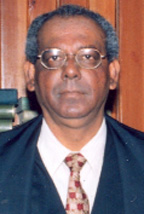The National Development Strategy (NDS) could be used by the next government as the basis for a social contract aimed at fostering greater cooperation on national interests, according to Speaker of the National Assembly Ralph Ramkarran.

In his column in the August 14-August 15, 2010 edition of the Weekend Mirror, Ramkarran argued that Guyana is ready for a social contract by which the major sections of the society, including the political opposition, can agree on broad national goals.
He added that such an agreement would not inhibit the right freedom to criticise individual policy initiatives for any reason.
Although he conceded the adversarial nature of the local political system with the qualification that it is not limited to Guyana, Ramkarran said either expressed or implied agreement on national goals is likely to see divisiveness on individual policies disappear.
He noted that the country faces many challenges, including charting an economic course that attracts broad support; agreeing on the distribution of resources through a system that is accepted by all as ensuring equity; and establishing sufficiently effective mechanisms to facilitate transparency that is satisfactory to all stakeholders.
He also noted other issues, including ethnic insecurity, that drive accusations of discrimination.
He added that even if increasing inclusivity becomes a reality, it would still be necessary to implement additional institutional measures to ensure that all allegations are addressed. “The government has the responsibility to ensure all Guyana subscribes to a basic set of goals, buttressed by the necessary laws, regulations and agreements which ensure policies are informed by goals and are directed towards their achievement,” he said. “If the government can get an agreement, all the better.”
However, Ramkarran noted that developments in the recent past as well as the adversarial politics suggest that it would prove a difficult sell for the government. As a result, he suggested that the NDS, which already has broad national support, would be a good starting point.
He reminded that an opposition motion in the National Assembly to revise the NDS and develop it into a document that would enshrine national goals did not attract majority support. And further, he said that with so much already on the national agenda to be achieved in a short time, an engagement on the NDS would not likely be feasible. Consequently, he urged that the new government ought to retrieve the NDS from its current resting place and place it on the agenda once more. “It could be the initiative which would trigger a national debate on the creation of national goals which are already encapsulated in the NDS and merely needs vision,” Ramkarran said. He added that a positive consideration by the next National Assembly of the idea to establish a NDS Secretariat which would promote its goals in economic, social and political policies “would be a great victory for inclusiveness and political stability in Guyana.”
The NDS was developed following the 1992 PPP/Civic win. After much criticism over the involvement of the Carter Center in the process, it was placed in the hands of civil society in an exercise co-chaired by Dr Kenneth King and Mavis Benn. It has not been adopted as the official national development strategy although the government has said it is implementing parts of it.
In December 2006, the government used its parliamentary majority to block a motion by PNCR-1G MP Winston Murray for a people-driven initiative to update the NDS. Although a postponement of debate on the motion had offered hope of consensus, the two sides could not agree on the approach to revise the strategy.
The government speakers defended its track record with regard implementation, as well as the administration’s right to take the lead in the revision of the strategy, saying it would later be subject to input from civil society and the oversight of the sectoral committee on economic services. Opposition members described the outcome as a “sad event” and “an act of bad faith.” A year before, an almost identical opposition motion had received the unanimous support of both sides of the house.









